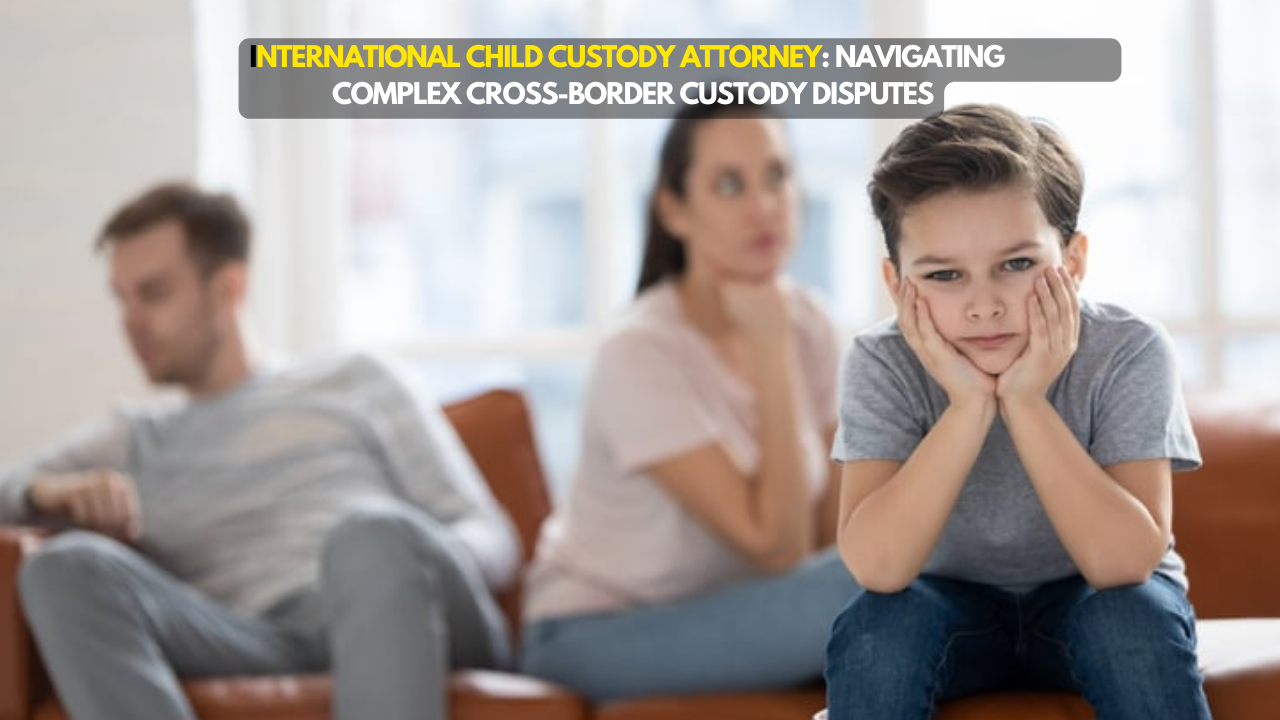In our increasingly globalized world, international relationships have become more common, leading to the rise in cross-border marriages and relationships. While such unions offer diverse cultural experiences and unique personal growth, they can also lead to complexities when it comes to family matters, particularly child custody disputes. The role of an international child custody attorney has gained paramount importance in navigating the intricate terrain of cross-border custody battles. This article delves into the challenges, responsibilities, and significance of international child custody attorneys in resolving these complex disputes.
The Growing Need for International Child Custody Attorneys
As families become more multicultural and mobile, relationships spanning different countries are on the rise. Such unions often result in families living in different countries or relocating frequently. This mobility can strain relationships and lead to separations, which then raise complex legal questions about child custody. International child custody attorneys are uniquely equipped to handle these situations due to their specialized knowledge of both family law and international law.
Challenges in Cross-Border Custody Disputes
Cross-border child custody disputes are characterized by their multifaceted challenges. These complexities can include differences in legal systems, cultural norms, language barriers, and geographical distances. Understanding the legal nuances of multiple jurisdictions is essential for an international child custody attorney, as laws pertaining to custody, visitation, and parental rights can greatly vary from one country to another.
Legal Framework for International Child Custody
The Hague Convention on the Civil Aspects of International Child Abduction, an international treaty ratified by many countries, plays a pivotal role in resolving international child custody disputes. This treaty aims to protect children from abduction and retention across international borders by a parent or guardian. International child custody attorneys often leverage the principles and guidelines established by the Hague Convention to navigate and negotiate custody cases.
Role and Responsibilities of an International Child Custody Attorney
An international child custody attorney assumes a multifaceted role in such disputes:
- Legal Expertise: International child custody attorneys possess in-depth knowledge of both family law and international law. They analyze cases considering the legal frameworks of different countries involved, identifying the best jurisdiction to file the case and strategizing for optimal outcomes.
- Mediation and Negotiation: These attorneys often play a role in mediating and negotiating between parents to reach amicable custody arrangements. Given the complexities, alternative dispute resolution methods are often favored to avoid prolonged litigation.
- Documentation and Compliance: Drafting accurate legal documents is crucial in international custody cases. Attorneys ensure that all documentation meets the legal standards of the relevant jurisdictions and that parties are compliant with court orders.
- Litigation: When negotiation fails, litigation becomes necessary. International child custody attorneys represent their clients in court proceedings, advocating for their rights and presenting a compelling case that considers international legal standards.
- Cultural Sensitivity: Cross-border disputes involve parties from different cultural backgrounds. Attorneys must be sensitive to these cultural differences, as they can influence perspectives on parenting, family dynamics, and custody preferences.
- Enforcement of Orders: Even after a custody order is obtained in one jurisdiction, enforcing it in another country can be challenging. International child custody attorneys work to ensure the orders are recognized and enforced internationally.
Unique Skills of an International Child Custody Attorney
- Conflict Resolution: International child custody attorneys are adept at resolving conflicts that arise from differing legal systems and cultural norms. Their skills in diplomacy and negotiation are crucial in finding common ground.
- Legal Research: Navigating multiple legal systems requires extensive legal research to provide accurate advice and representation. Attorneys must stay updated on the evolving laws in various jurisdictions.
- Language Proficiency: Language barriers can complicate communication between parties and legal systems. Attorneys with multilingual skills can bridge these gaps effectively.
- Cross-Cultural Competence: Understanding the cultural nuances of each party involved helps attorneys anticipate potential areas of contention and develop strategies to address them.
Case Study: The Complexity of Cross-Border Custody
Consider a case where parents from different countries get divorced while residing in a third country. Each parent wants to take the child to their respective home countries. This scenario involves navigating the family laws of the country of divorce, the country of the mother’s nationality, and the country of the father’s nationality. An international child custody attorney would need to analyze these laws, considering the best interests of the child, and negotiate a custody arrangement that respects the child’s relationships with both parents and the laws of all involved jurisdictions.
Conclusion
In a world where international relationships are becoming the norm, the role of international child custody attorneys is paramount. These legal professionals navigate the intricate web of international laws, cultural norms, and complex relationships to secure the best interests of the child. By combining legal expertise, cultural sensitivity, and negotiation skills, they play a pivotal role in resolving complex cross-border custody disputes and ensuring that children’s well-being remains at the forefront of legal proceedings.

